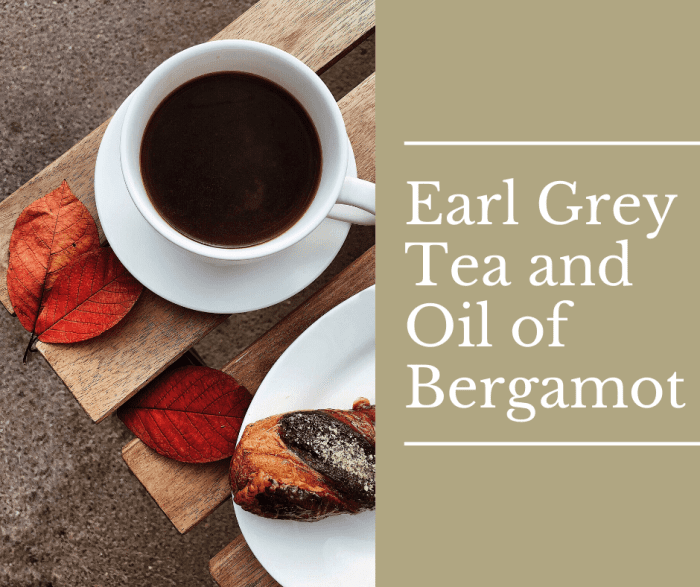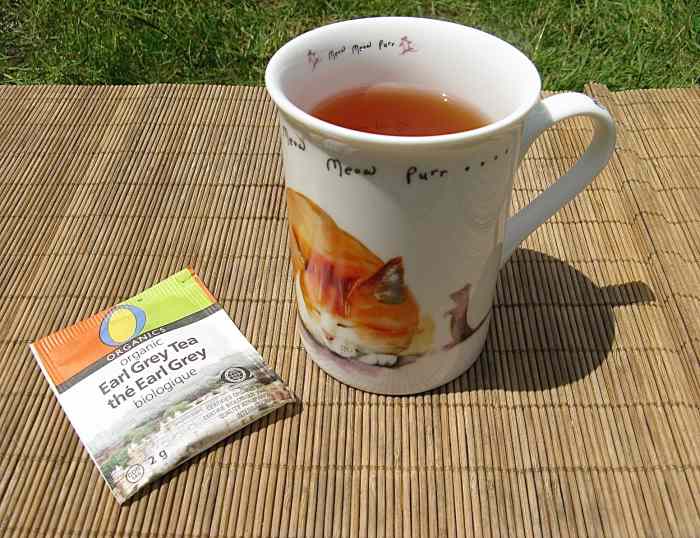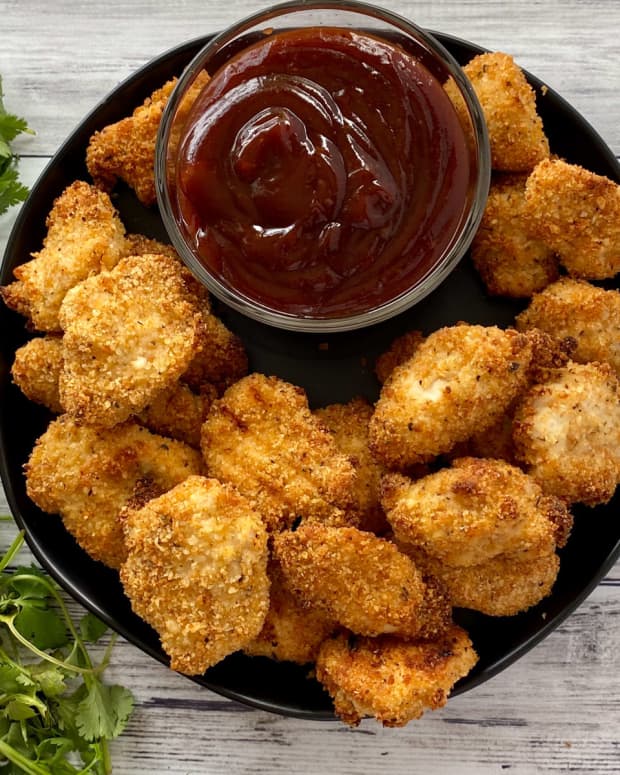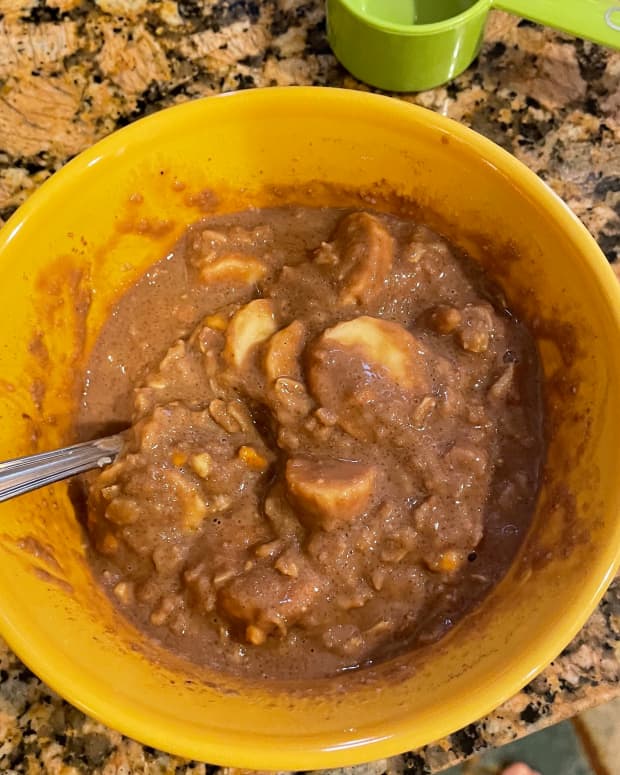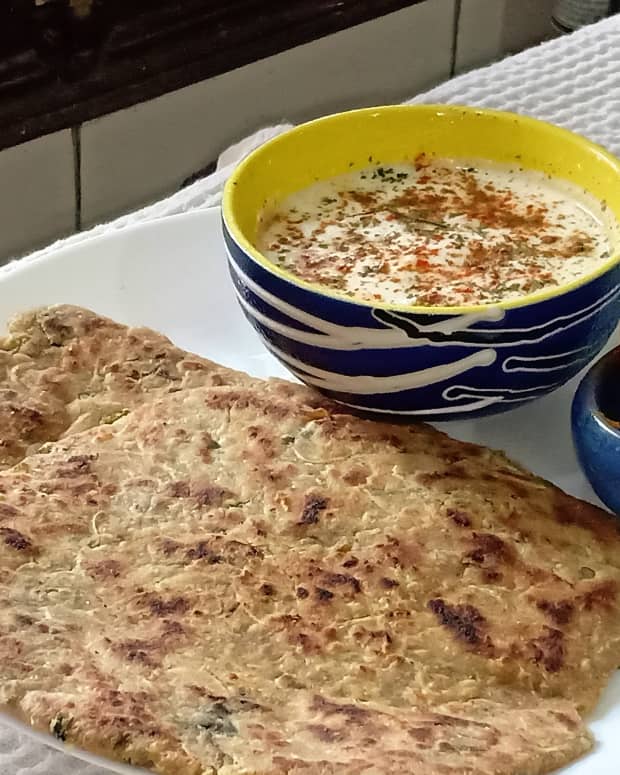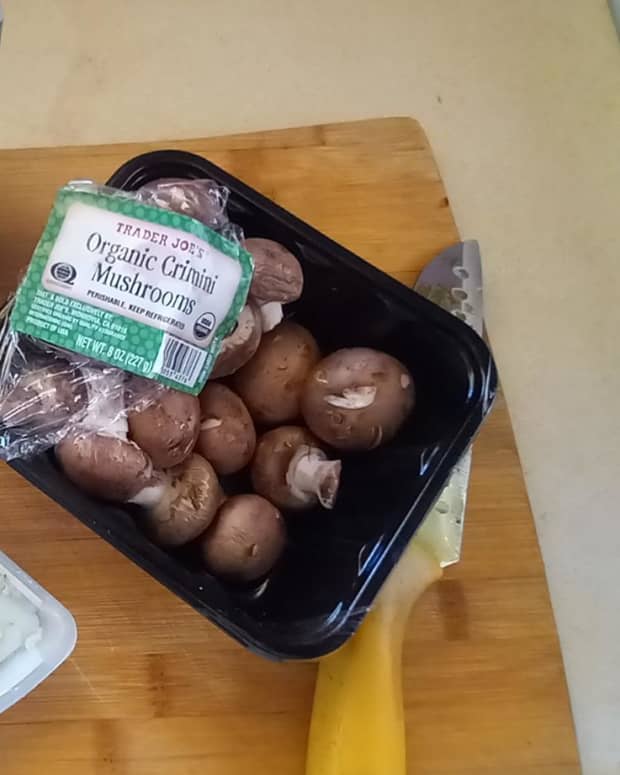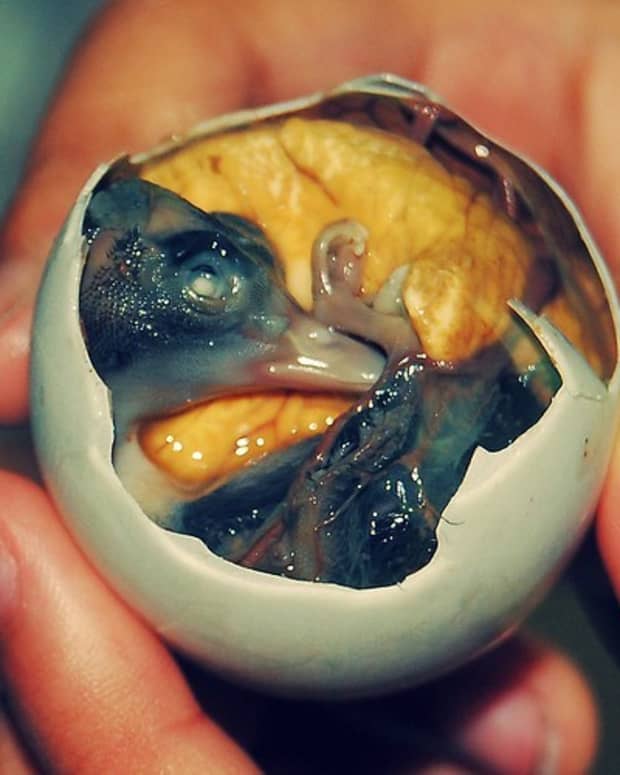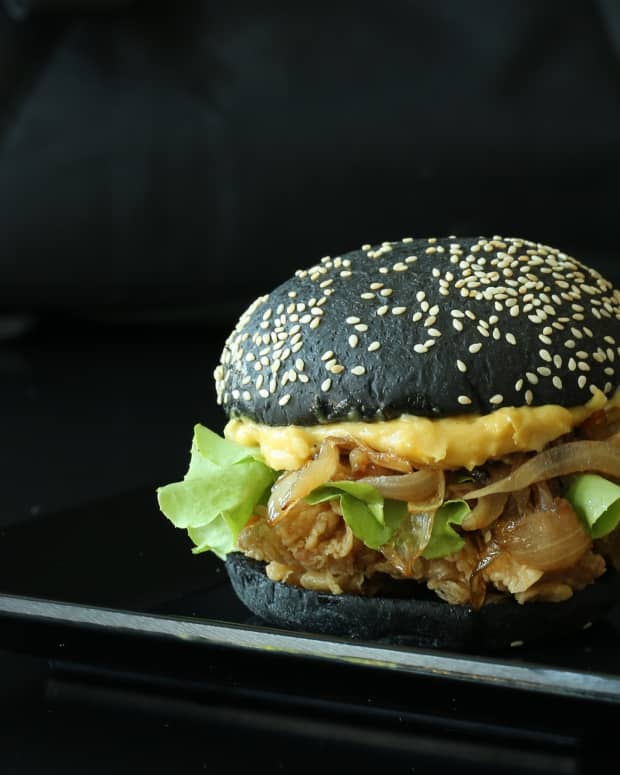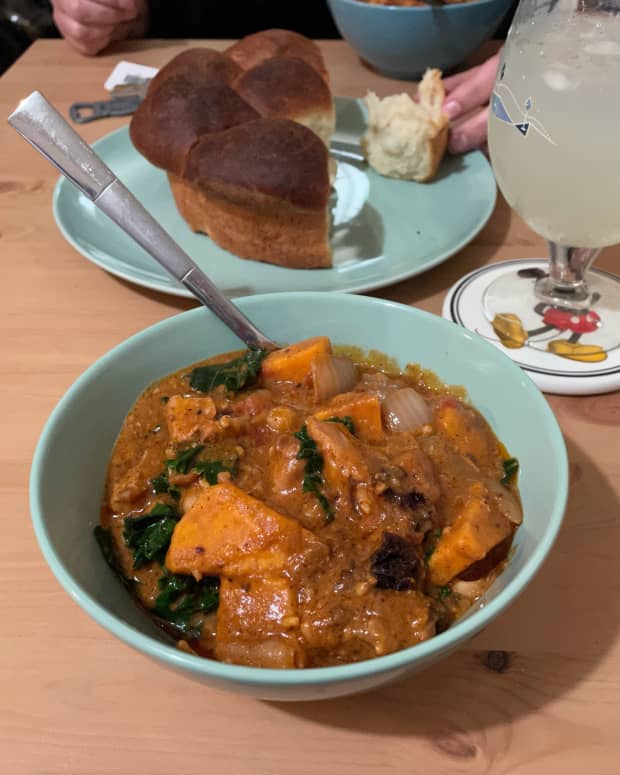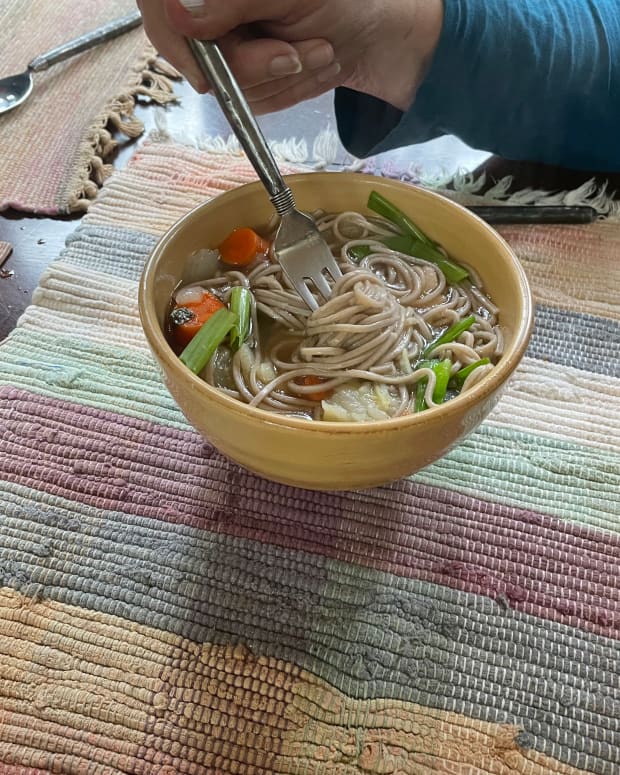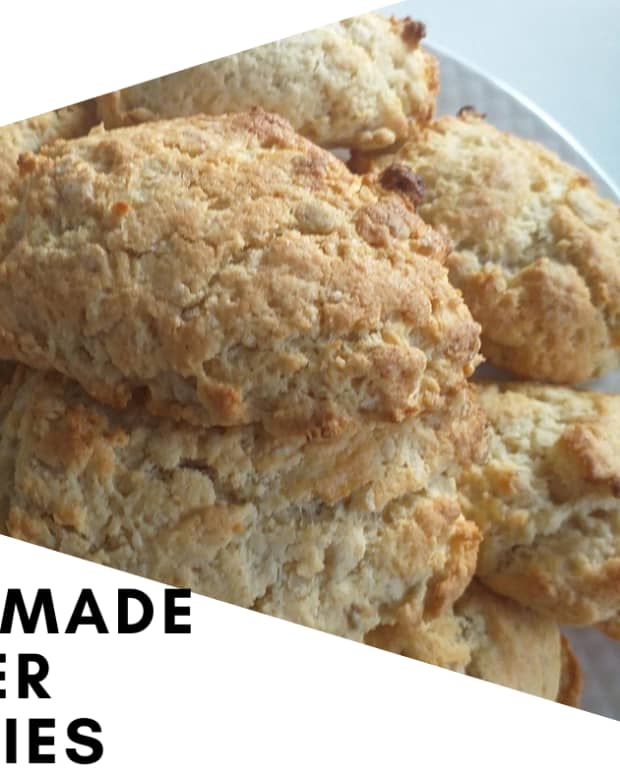Earl Grey Tea and Oil of Bergamot From Calabrian Oranges
Linda Crampton is a teacher with an honors degree in biology. She enjoys exploring nutrition as well as the culture and history of food.
A Delicious Beverage
Earl Grey tea is a variety of black tea. It has a distinctive taste and aroma that I find very appealing. The flavor comes from an oil that is extracted from the peel of bergamot oranges, or bergamots. These sour citrus fruits are grown in several countries but are most abundant in the region of Calabria in southern Italy. The oil is used to flavor desserts, confectionery, and liqueurs as well as beverages. It also supplies a pleasant scent to perfumes and lotions and is used in aromatherapy.
The small quantities of oil of bergamot used in drinks and foods are safe as well as delicious. The oil may not be safe when applied to the skin, however, because it causes photosensitivity. In this condition, there is an increased likelihood that ultraviolet radiation in sunlight will damage skin cells. Some people have developed rashes, blisters, and increased pigmentation after exposure to concentrated bergamot oil and ultraviolet light. Topical (skin) application of the oil may also increase the risk of skin cancer.
The word "bergamot" is used to refer to herbs in the mint family as well as a type of orange. The herbs are very different plants from the orange, but their leaves do have a flavor that is reminiscent of that of oil of bergamot.
Captain Jean-Luc Picard Loves Earl Grey Tea!
History of the Beverage
The history of Early Grey tea is uncertain. It seems to have first appeared in the nineteenth century. It may have been named after Earl Charles Grey, who was prime minister of Britain from 1830 to 1834. There are several stories that attempt to explain how the Earl was connected to the tea. One of the most fanciful is that he played a role in saving a Chinese mandarin's son from drowning. (A mandarin was a government official in the Chinese Empire.) The grateful father supposedly created the tea as a present for the Earl. Another story says that Earl Grey's family asked a Chinese mandarin to create a tea that would neutralize the lime present in the water around their home.
Applying the prime minister's name to the tea may have been simply a way to honor him. It's also possible that the origin of the tea had no connection to the Earl and that his name was used merely to make the tea sound more respectable. Some researchers suspect that oil of bergamot was first added to inferior teas with little flavor in order to make them taste better.
Lady Grey Tea
Lady Grey tea is named after Mary Elizabeth Grey, the wife of Charles Grey. Unlike Earl Grey tea, it's a modern creation by the Twinings tea company. The beverage contains oil of bergamot, lemon peel, and orange peel, as well as cornflower or lavender, which are both blue in color. The flowers are sometimes omitted from the tea. Other non-traditional varieties of Earl Grey tea are also available in stores today. Sometimes oil of bergamot is added to green tea instead of black tea. Jasmine may be added as well as the oil in order to provide additional flavor.
Facts About Bergamot Oranges
The bergamot orange plant grows as a small to medium sized tree. Its leaves are oval with pointed tips. The aromatic fruits are produced in winter. They are the size of edible oranges and have the yellow or yellow-green color of a lemon when they're ripe. They also have a pale yellow or yellow-green flesh. Some are slightly pear-shaped due to a small "neck".
The plant is thought to have developed as a hybrid between a sour orange and another citrus fruit, probably a lemon or a lime. The first description of bergamots comes from the early eighteenth century. There are two versions of the plant's scientific name. Some researchers use the name Citrus bergamia, while others call the plant Citrus aurantium (the same scientific name as sour or bitter orange) and classify the plant in the subspecies bergamia. Bergamot oranges are used to produce an oil and a marmalade, but they're not eaten as fruit or used to make fruit juice. They're far too sour for this purpose.
Calabria is the most popular area for oil of bergamot production, since trees there consistently produce fruits containing a high-quality oil. Calabria is the region that forms the "toe" of Italy. Bergamot trees grow mainly near the coastline.
There have been serious side effects, including convulsion and death, in children who have taken large amounts of bergamot oil.
— WebMD
Uses of Oil of Bergamot and Precautions
Oil of bergamot adds a delicious flavor to foods and drinks and lovely scents to soaps, lotions, shampoos, and perfumes. It should probably be avoided in products designed to be left on areas of the skin that will be exposed to light because of its potential to cause skin damage. The oil should always be used in small quantities, especially in children, as the quote above shows.
Some alternate health practitioners claim that oil of bergamot has many health benefits, including helping to treat psoriasis and vitiligo, treating fungal disease on the skin, killing insect pests such as lice, killing bacteria, controlling anxiety and relieving depression when used in aromatherapy, aiding digestion, and relieving fever and pain.
At the moment, there isn't much—or sometimes any—scientifically acceptable evidence to support the above claims. Even if the oil does help a condition, there's a danger that it will create a more serious problem than it solves.
Potential Dangers of the Oil
The main chemical in bergamot oil that causes photosensitivity is bergapten, though other substances may be involved as well. The oil has been used in sunscreens and tanning lotions in the past, which is definitely not a good idea now that we know more about it.
Bergapten is a type of psoralen. Psoralens belong to a larger group of chemicals known as furanocoumarins. These chemicals are responsible for the harmful skin effects caused by the giant hogweed plant. In the past couple of years, some companies have started using FCF bergamot oil in their cosmetics. FCF stands for furanocoumarin-free. As the name implies, the furanocoumarins have been removed from the oil. This sounds like a good idea with respect to skin safety.
Bergamot oil might lower blood sugar. WebMD recommends that people stop ingesting the oil at least two weeks before surgery. Since the oil is found in the peel of a bergamot orange, eating the flesh should cause no problems. You should seek a doctor's advice if you eat bergamots or their products and you have upcoming surgery, however.
Bergamot Oil and Medications
Bergamot oil is made up of a complex mixture of chemicals. In addition to bergapten, it contains a substance called bergamottin. This chemical is also found in grapefruit juice and is the reason why the juice has to be avoided by people taking certain medications. Bergamottin inhibits an enzyme that breaks down the medications in the body. This can cause a medicine to stay in the body for longer than normal and perhaps reach a dangerous level if more doses are taken.
It's unknown whether ingesting bergamot oil affects medications as seriously as drinking grapefruit juice does. If you ingest foods or drinks containing the oil and have to avoid grapefruit juice due to medication use, you should discuss the situation with a doctor or a pharmacist.
Harvesting Bergamots in Calabria
Cholesterol in Our Body
There is some evidence that chemicals in bergamot oranges can lower the cholesterol level in our body. Cholesterol is an essential chemical that has vital functions. In specific circumstances it can cause problems, however.
When doctors refer to "lowering cholesterol", they are generally talking about LDL cholesterol. Although this form of cholesterol is a normal component of our body, an excessive amount can contribute to the buildup of deposits known as plaque in blood vessels. Plaque can interfere with blood flow and increase the risk of a heart attack. HDL cholesterol is often referred to as the "good" cholesterol because it reduces the buildup of plaque and lowers the risk of circulatory problems.
Earl Grey Tea, Polyphenols, and Heart Disease
There is no evidence that Earl Grey tea lowers the blood cholesterol level or protects people from heart disease as well as statins do, as some newspaper headlines have proclaimed. Statins are widely used drugs that reduce cholesterol and lower the risk of heart disease and strokes. Certain chemicals in bergamot may have benefits related to the cholesterol level in the blood, however.
The misleading newspaper headlines about the benefit of Earl Grey tea appeared after a research report was published in the Journal of Functional Medicine in 2014. The report showed that chemicals from bergamot peel (not Earl Grey tea) lowered LDL cholesterol and triglycerides (fats) in the blood of rats. The chemicals also raised the level of HDL cholesterol in the rats.
In 2013, the International Journal of Cardiology published a significant report related to humans. The researchers found that polyphenols that were extracted from bergamot fruit enhanced the effect of a statin with respect to lowering the LDL cholesterol level in human subjects.
In 2015, a report published in Frontiers of Pharmacology showed that a bergamot extract on its own could lower the cholesterol level. The extract contained flavonoids, which form a subgroup of the polyphenol family of chemicals. Interestingly, the 2013 rat experiment involved bergamot flavanones. Flavanones are a type of flavonoid.
It should be noted that in all of the experiments mentioned above, extracts containing specific chemicals were used instead of whole bergamot oranges or bergamot oil. Many plants contain chemicals that are potentially medicinal but are too dilute to act as medicines until they are extracted and concentrated.
The chemicals in bergamots are interesting. Perhaps in the future we will discover some wonderful—and safe—medical uses for oil of bergamot, the bergamot fruit, and perhaps even Earl Grey tea. Until then, we can at least enjoy the lovely taste and aroma of the tea.
References
- History of Earl Grey tea from the Foods of England project
- Information about bergamot oil from WebMD
- Bergamottin facts from the HMDB (Human Metabolome Database)
- Earl Grey tea and health information from WebMD
- Information about the effect of polyphenols from bergamot on LDL cholesterol from the International Journal of Cardiology (Abstract)
- Bergamot Reduces Plasma Lipids, Atherogenic Small Dense LDL, and Subclinical Atherosclerosis in Subjects with Moderate Hypercholesterolemia from Frontiers in Pharmacology
This content is accurate and true to the best of the author’s knowledge and does not substitute for diagnosis, prognosis, treatment, prescription, and/or dietary advice from a licensed health professional. Drugs, supplements, and natural remedies may have dangerous side effects. If pregnant or nursing, consult with a qualified provider on an individual basis. Seek immediate help if you are experiencing a medical emergency.
© 2012 Linda Crampton
Comments
Linda Crampton (author) from British Columbia, Canada on August 03, 2018:
Hi, LaNae. I can't really recommend a brand for you because everyone has different tastes. I can share the brands that I drink, though. I used to like the one shown in my first photo, but that isn't sold in my local stores any more. I buy the Choice organic version when I find it. I also buy a Stash variety because it's easier to find. It's not organic, but it does contain natural oil of bergamot.
LaNae Atkinson on August 03, 2018:
Hi Linda, can you recommend a good brand of the tea that is authentic, organic?
Thank you in advance
Linda Crampton (author) from British Columbia, Canada on July 05, 2018:
Hi, Marylynn. I’ve never drunk a brand of Earl Grey tea that contains bergamot orange fruit (as far as I know). All the versions that I’ve tried contain oil that has been extracted from the fruit. I don’t have a favourite brand. I enjoy all of the ones that I’ve tried.
Marylynn Grimes on July 05, 2018:
Hello Linda, you may have already answered this but can you recommend an organic earl grey that does have the whole citrus fruit in it? Thank you!
Linda Crampton (author) from British Columbia, Canada on March 23, 2018:
Hi, Desmond. What I do is buy organic Earl Grey tea. I find that this contains oil of bergamot instead of bergamot flavoring.
Desmond on March 23, 2018:
Is there an Earl Grey tea with whole citrus bergamot ?
I keep buying Earl Grey but they have bergamot flavoring.
Linda Crampton (author) from British Columbia, Canada on July 06, 2014:
Thank you, Maggie.L. It's nice to meet you! I enjoy Earl Grey tea, too. I love its taste.
Maggie.L from UK on July 06, 2014:
Earl Grey tea is my favourite tea. I really enjoyed your article and the interesting stories as to how Earl Grey tea might have got its name.
Linda Crampton (author) from British Columbia, Canada on July 06, 2014:
That's a shame, Torrs13, since tea has many health benefits. I didn't like the taste of tea as a child, but luckily I do now. Thanks for the visit!
Tori Canonge from North Carolina on July 06, 2014:
Some days I wish that my taste buds actually liked tea. For some reason, they just don't :(
Linda Crampton (author) from British Columbia, Canada on July 06, 2014:
Thanks, ologsinquito. It's interesting how different brands of the same type of tea can taste so different. I'm glad that you found a version of Earl Grey tea that you enjoy.
ologsinquito from USA on July 06, 2014:
I once really disliked Earl Grey tea. But then I had a different brand and now I think it's exquisite. Very nice article on how this type of tea is produced.
Linda Crampton (author) from British Columbia, Canada on June 28, 2012:
Thank you so much for the kind comment, the votes and the shares, Peggy. I appreciate them all!
Peggy Woods from Houston, Texas on June 28, 2012:
What an interesting hub, Alicia. Of course I always expect that from you. I wonder if the sour oranges grown in the southern parts of the U.S. mostly for decorative purposes are actually Bergamot oranges? Very interesting history about the tea being named, and the information about the oranges and oil of Bergamot was both useful and interesting. Many votes up and tweeting and sharing. Thanks!
Linda Crampton (author) from British Columbia, Canada on June 25, 2012:
Thank you very much for the comment, teaches. I used to love watching Star Trek: The Next Generation, and Captain Picard was one of my favorite characters. I liked his habit of asking for "Earl Grey tea, hot" too!
Dianna Mendez on June 25, 2012:
Earl Grey is one of my favorite teas. I had to chuckle at your posting of Captain Picard as I always loved his habit of asking for :Earl Grey tea, hot." Excellent hub article!
Linda Crampton (author) from British Columbia, Canada on June 25, 2012:
Thank you very much for the comment and the vote, mecheshier! I love drinking tea, too, and I enjoy studying its history.
mecheshier on June 25, 2012:
Lovely Hub. I love my tea and definitely adore history. There is always something to learn. Thank you for sharing. Voted up for awesome.
Linda Crampton (author) from British Columbia, Canada on June 25, 2012:
Thanks for the visit and the comment, drbj. Oil of bergamot does have a distinct taste. I love its addition to teas!
drbj and sherry from south Florida on June 25, 2012:
A lovely exploration of Earl Grey tea and the distinctive Bergamot orange, Alicia. So it's oil of bergamot that gives this tea its very distinctive flavor. Who knew?
Linda Crampton (author) from British Columbia, Canada on June 25, 2012:
Thank you for the comment, GoodLady. I agree, Earl Grey tea is very nice to drink. It's one of my favorite types of tea.
Linda Crampton (author) from British Columbia, Canada on June 25, 2012:
That's funny, Steel Engineer. I wonder how many other people started drinking Earl Grey tea because of Jean-Luc Picard!
Penelope Hart from Rome, Italy on June 25, 2012:
It is a lovely taste and a wonderful aroma and I did enjoy reading your hub and learning so much I did not know about the bergamot orange. I'll look out for infusions and things next time I go to my local herb shop! Thanks
Steel Engineer from Kiev, Ukraine on June 25, 2012:
I actually started drinking Earl Grey because of Picard!

